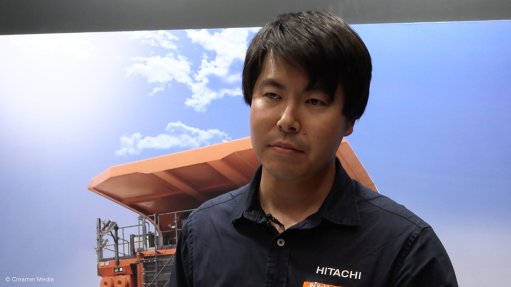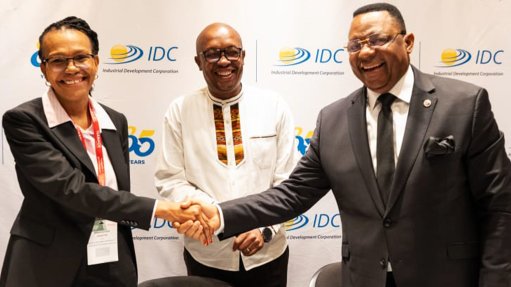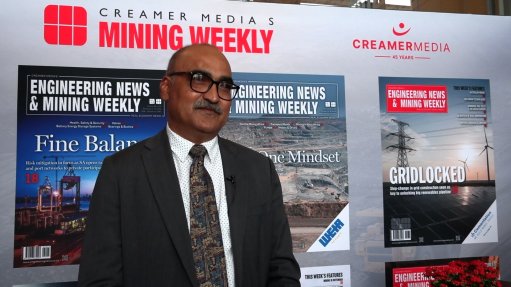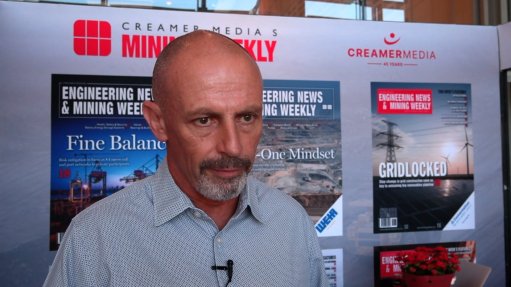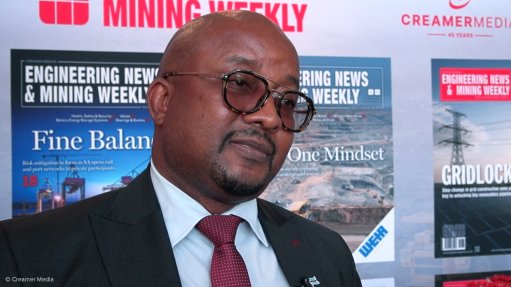Financing the Just Energy Transition for Africa’s Emerging Markets
Wendy Dobson, Head: Group Corporate Citizenship at Standard Bank Group
Energy is a key enabler of sustainable and inclusive growth. However, according to the United Nations Economic Commission for Africa, 600 million people on our continent do not have access to electricity, which corresponds to an electricity access rate for African countries of just over 40% - the lowest in the world.
Another challenge to overcome is that Africa’s energy is mainly generated by burning carbon-based fuels, making this sector the highest contributor to the continent’s carbon emissions. The development of renewable energy infrastructure is critical to overcome both challenges – to decarbonise the sector and generate much needed energy for millions of Africa’s people.
It must be recognised, however, that a sudden switch away from carbon-based forms of energy poses huge transition risks for Africa’s people. Countries such as Nigeria, Angola, Ghana and Mozambique depend on the foreign currency and tax revenues generated from the production of oil and gas for global markets to develop their respective economies and support social development. In South Africa, the coal value chain accounts for 5% of GDP, and provides employment for about 200 000 workers.
To ensure a just transition away from carbon-based forms of energy, we must find ways to counterbalance the negative impacts on livelihoods and income. We must ensure that no-one is left behind. This requires a holistic and inclusive approach, which considers both environmental and socio-economic issues specific to each country or region.
Financing a just transition
According to the African Development Bank, the estimated cumulative financing needs for Africa to respond adequately to climate change range from about US$1.3 trillion to US$1.6 trillion, or about US$127.8 billion per year. If developing countries are to move away from carbon-based fuels, they will require massive foreign investment flows to support the development of renewable energy infrastructure. To date, this investment has been woefully small. In 2021, for example, only 0.6% of global investment in renewable energy was invested in Africa.
Policy approaches and financing solutions need to include provision for not just the development of renewable energy infrastructure capacity, but also support for the communities and workers negatively impacted by the transition, including skills development and support to transition into new economic activities.
Adaptation finance will also be critical, to enable communities and countries to adapt to changes and challenges that are already taking place. In November, governments, leading corporates, academics, and other industry leaders gathered in Egypt for the 27th Conference of the Parties of the UNFCCC, or COP27. For emerging markets in particular, the priority this year was for a commitment from developed nations to loss and damage funding agreement, to assist developing countries that are already suffering from the impacts of climate change. Such funding is crucial to enable these countries to access the significant amounts of capital needed to manage climate adaptation and strengthen their resilience to the physical risks of climate change. While an agreement has been reached, a huge step in the right direction, the details are still to be developed.
Two important initiatives were launched at COP27. One is the Africa Adaptation Acceleration Programme, which aims to mobilise US$25 billion over the next five years for climate adaption. Another is the Africa Carbon Markets Initiative, which seeks to dramatically expand Africa’s participation in voluntary carbon markets, raising hundreds of millions of US dollars for credible carbon offsets across the continent.
While both programmes are potentially game-changing, effective implementation remains a challenge. In a global context characterised by high levels of geopolitical tension, macroeconomic uncertainty and the looming threat of recession, the risk of weak and inadequate follow-through on COP commitments is high.
Banks strategically positioned to drive sustainable finance
Financial services providers, particularly those on the ground in Africa and with a strong understanding of African markets, have a crucial role to play. These institutions understand the risks and opportunities at national and regional level, they have strong relationships with diverse stakeholders across the public and private sectors, and they understand the energy needs, economic dependencies and climate commitments of different countries. They are well positioned to work with governments and multilateral agencies to model appropriate solutions for infrastructure development finance, adaptation finance, and solutions to support the just transition.
Africa’s financial services providers are also working closely with their clients, from corporates to farmers to small businesses, to help them manage the transition to a low carbon economy in ways that support sustainability, increase climate resilience, and enhance socio-economic development. Many of us have made our own net zero commitments and are partnering with our clients to achieve these commitments, in a manner that supports a just transition and sustainable economic growth.
Investor confidence
Africa’s just energy transition must maximise the social and economic opportunities associated with the transition, including the development of new sectors, skills and local manufacturing and technological capacity, while supporting every effort to reduce emissions and develop new, cleaner sources of energy.
Solutions need to be contextualised and tailored to the environmental, socio-economic, and political priorities of each country. National governments need to provide clear leadership and policy certainty, to secure investor confidence, attract foreign funding, and ensure projects are designed and implemented with a strong focus on good governance and the realisation of both social and environmental benefits. Africa has the natural resources, in the form of sun, wind, waves and biodiversity, to lead the world in renewable energy and carbon offset mechanisms. But it will need all of us, the public and private sectors and civil society, working together to achieve this potential.
About Standard Bank
Standard Bank Group is the largest African bank by assets, operating in 20 African countries and 5 global financial centres. Headquartered in Johannesburg, South Africa, we are listed on the Johannesburg Stock Exchange, with share code SBK, and the Namibian Stock Exchange, share code SNB.
Standard Bank has a 160-year history in South Africa and started building a franchise outside southern Africa in the early 1990s.
Our strategic position, which enables us to connect Africa to other select emerging markets as well as pools of capital in developed markets, and our balanced portfolio of businesses, provide significant opportunities for growth.
The group has over 46 000 employees excluding Liberty, more than 1 143 branches and over 6 600 ATMs on the African continent, which enable it to deliver a complete range of services across personal and business banking, corporate and investment banking and wealth management.
Standard Bank Group Limited (SBG or group) headline earnings for the twelve months to 31 December 2021 (FY21) were R25.0 billion, Return on equity (ROE) was 13.5%. Standard Bank’s market capitalisation as of 31 December 2021 was R228 billion (USD14 billion).
The group’s largest shareholder is the Industrial and Commercial Bank of China (ICBC), the world’s largest bank, with a 20.1% shareholding. In addition, Standard Bank Group and ICBC share a strategic partnership that facilitates trade and deal flow between Africa, China and select emerging markets.
For further information, go to http://www.standardbank.com
Article Enquiry
Email Article
Save Article
Feedback
To advertise email advertising@creamermedia.co.za or click here
Press Office
Announcements
What's On
Subscribe to improve your user experience...
Option 1 (equivalent of R125 a month):
Receive a weekly copy of Creamer Media's Engineering News & Mining Weekly magazine
(print copy for those in South Africa and e-magazine for those outside of South Africa)
Receive daily email newsletters
Access to full search results
Access archive of magazine back copies
Access to Projects in Progress
Access to ONE Research Report of your choice in PDF format
Option 2 (equivalent of R375 a month):
All benefits from Option 1
PLUS
Access to Creamer Media's Research Channel Africa for ALL Research Reports, in PDF format, on various industrial and mining sectors
including Electricity; Water; Energy Transition; Hydrogen; Roads, Rail and Ports; Coal; Gold; Platinum; Battery Metals; etc.
Already a subscriber?
Forgotten your password?
Receive weekly copy of Creamer Media's Engineering News & Mining Weekly magazine (print copy for those in South Africa and e-magazine for those outside of South Africa)
➕
Recieve daily email newsletters
➕
Access to full search results
➕
Access archive of magazine back copies
➕
Access to Projects in Progress
➕
Access to ONE Research Report of your choice in PDF format
RESEARCH CHANNEL AFRICA
R4500 (equivalent of R375 a month)
SUBSCRIBEAll benefits from Option 1
➕
Access to Creamer Media's Research Channel Africa for ALL Research Reports on various industrial and mining sectors, in PDF format, including on:
Electricity
➕
Water
➕
Energy Transition
➕
Hydrogen
➕
Roads, Rail and Ports
➕
Coal
➕
Gold
➕
Platinum
➕
Battery Metals
➕
etc.
Receive all benefits from Option 1 or Option 2 delivered to numerous people at your company
➕
Multiple User names and Passwords for simultaneous log-ins
➕
Intranet integration access to all in your organisation










